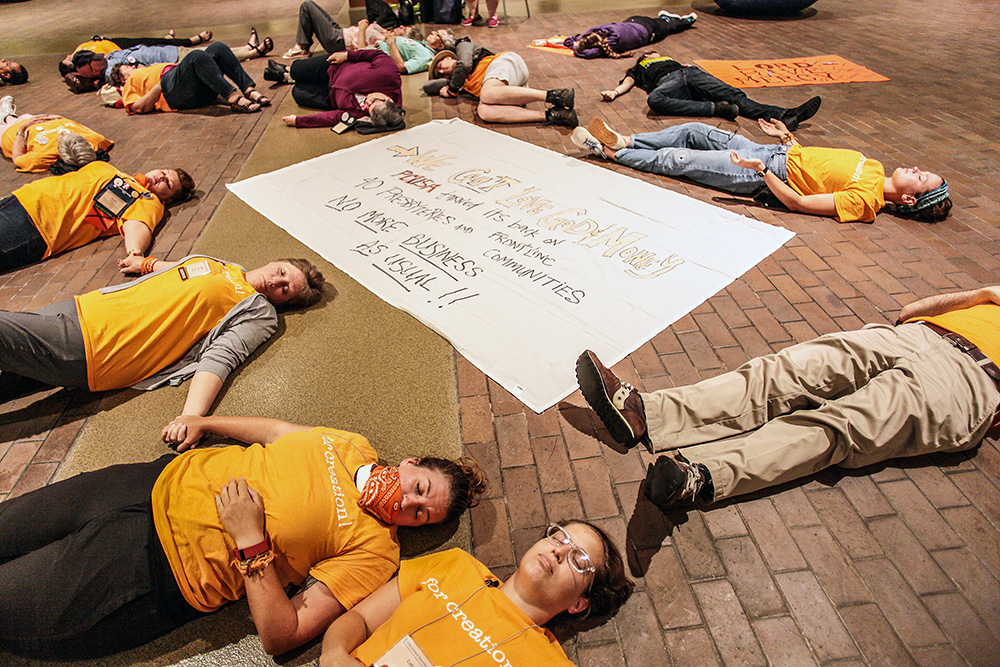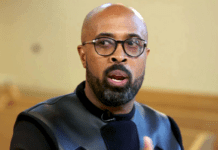Earlier this week, a group of three dozen faith groups from seven countries announced they have divested from fossil fuels. The groups include five Church of England dioceses, two Catholic dioceses in the United Kingdom, 11 Catholic religious orders, two Jesuit universities in the United States and the United Methodist Church in Ireland.
Darren Dochuk, author of “Anointed With Oil,” a history of religion and the oil industry in the United States, said faith groups in the past saw oil and other fossil fuels as a blessing. Some of the early oil tycoons, such as the Pew family and Lyman Stewart, who helped fund the fundamentalist movement, were Presbyterians and many church institutions in the United States were funded by oil money.
Divesting from fossil fuels, Dochuk said, is complicated both for denominations and for local congregations, especially those in areas where the local economy depends on the fossil fuel industry.
“Today’s generation probably doesn’t realize that this is a relationship generations in the making,” he said. “So, to all of a sudden unravel it or disassemble it is complicated.”

Members of Friends of Fossil Free PCUSA symbolically portray deaths over the next several years in protest of General Assembly 223 voting to not immediately divest from the fossil fuel industry on June 22, 2018, in St. Louis. Photo by Danny Bolin/PCUSA
Fletcher Harper, an Episcopal priest and executive director of GreenFaith, an environmental group, said the increasing threat of climate change makes divestment from fossil fuels a crucial priority for churches. In the past, he said, there were worries that doing so would cost churches money.
That’s no longer the case, he said.
“The research has shown you can get out of oil and gas and perform as well as the market,” he said.
Along with divesting, he said, faith groups can work with other activists to put pressure on financial companies to get out of investing in fossil fuels. That’s the bigger goal, he said.
“The purpose of the climate movement is not just to get certain small sectors of the economy to be fossil fuel-free,” he said. “We need a fossil-fuel-free economy, period.”
Fohr told Religion News Service in an interview that the MRTI committee will continue to engage with companies and work with church leaders to turn their values into action. The work remains complicated, he said, adding that “the divine is in the details.”
Still, he sees the divestment vote as a step toward progress.
“Fossil fuel divestment has been one of the more divisive and controversial issues at the past few General Assemblies,” he said in an email. “This year, it passed by almost 90% of the vote. I think this is something the PCUSA has to offer to the broader culture — through robust and transparent processes, differing sides can come together to effect meaningful change.”
This article originally appeared here.











